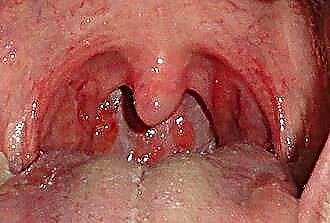Eucalyptus oil is an essential oil substance that has an anti-cold effect. About 80% of the emulsion consists of Evaliptol (cineole), which is used in traditional and alternative medicine as an antiseptic and expectorant.
 Eucalyptus extract is used for the preparation of anti-cold syrups and nasal drops, which help to relieve acute and chronic rhinitis. The active components of the agent inhibit the reproductive function of pathogenic microbes and bacteria. Timely use of the phytopreparation normalizes the secretory function of the nasopharyngeal mucosa, which leads to the elimination of congestion and concomitant symptoms.
Eucalyptus extract is used for the preparation of anti-cold syrups and nasal drops, which help to relieve acute and chronic rhinitis. The active components of the agent inhibit the reproductive function of pathogenic microbes and bacteria. Timely use of the phytopreparation normalizes the secretory function of the nasopharyngeal mucosa, which leads to the elimination of congestion and concomitant symptoms.
Using eucalyptus oil for a cold, you can relieve nasal breathing, eliminate the pathogenic flora in the ENT organs and speed up recovery.
About the drug
Eucalyptus oil for the common cold is a good alternative to synthetic antimicrobial and antiviral drugs. A natural antiseptic contains a large amount of useful organic matter, vitamins and trace elements that increase the body's resistance. The essential oil liquid contains:
- phytoncides;
- eucalyptol;
- camphene;
- fenchen;
- pinen;
- tannins;
- fatty acid.
 The above components inhibit the activity of pathogenic viruses and bacteria, which contributes to the regression of inflammation in the nasopharyngeal mucosa. Elimination of pathogenic flora ensures the speedy regeneration of the affected tissues, thereby increasing local immunity. The systematic use of the phytopreparation stimulates the activity of protective cells, which prevents the recurrence of catarrhal processes in the ciliated epithelium.
The above components inhibit the activity of pathogenic viruses and bacteria, which contributes to the regression of inflammation in the nasopharyngeal mucosa. Elimination of pathogenic flora ensures the speedy regeneration of the affected tissues, thereby increasing local immunity. The systematic use of the phytopreparation stimulates the activity of protective cells, which prevents the recurrence of catarrhal processes in the ciliated epithelium.
Pharmacodynamics
Can eucalyptus oil be used for a cold? Essential oil substances are among the concentrated solutions that provoke the development of allergic reactions. For this reason, experts do not recommend using a herbal remedy for the treatment of a cold in its pure form.
Eucalyptus extract is active against most pathogens, the reproduction of which leads to the development of ENT diseases:
- streptococci;
- Proteus;
- Pseudomonas aeruginosa;
- staphylococci;
- dysentery stick.
It is undesirable to use a phytopreparation in the treatment of newborns without prior consultation with a pediatrician.
An antiseptic is used as part of topical therapy to treat inflammation in the nasopharynx and paranasal sinuses. The therapeutic effect of the phytopreparation is due to the following medicinal properties:
- antiviral - inhibits the activity of viruses in the foci of inflammation, due to which the healing process is accelerated;
- antipyretic - normalizes thermoregulation, as a result of which hyperemia and body aches are eliminated;
- expectorants - liquefies mucus in the nasopharynx and promotes its evacuation;
- antibacterial - prevents the further multiplication of bacteria, thereby reducing the risk of developing bacterial sinusitis;
- emollient - gently cleanses the ciliated epithelium from purulent secretions, mucus and tissue detritus.
With the development of infectious and inflammatory processes in the upper respiratory tract, essential oil is used to prepare nasal drops and solutions for washing the nasopharynx and inhalation.
Rinsing the nose
Lavages are among the most effective therapeutic procedures for relieving symptoms of colds and coryza. Solutions with eucalyptus oil reduce swelling in the nasopharynx, thereby increasing the inner diameter of the nasal passages. Daily washing helps to eliminate rhinitis, lacrimation and headaches caused by the pressure of mucus on the walls of the paranasal sinuses.
How to use eucalyptus oil for the common cold? To prepare a medicinal solution, you should:
- dissolve 1 tsp in 250 ml of boiled water. sea salt;
- add 4-5 drops of phytopreparation to the solution;
- mix the liquid with 5 ml of "Chlorophyllipt";
- heat the solution to a comfortable temperature.
 When rinsing the nose, the head is tilted to one side, after which, using a syringe, a sufficient amount of the prepared solution is injected into the upper nostril. The mucus accumulated in the nasopharynx is blown out by pressing the second nostril against the cartilaginous septum. Similarly, the second nasal passage should be cleared of mucus.
When rinsing the nose, the head is tilted to one side, after which, using a syringe, a sufficient amount of the prepared solution is injected into the upper nostril. The mucus accumulated in the nasopharynx is blown out by pressing the second nostril against the cartilaginous septum. Similarly, the second nasal passage should be cleared of mucus.
You cannot throw your head back during the procedure. This will allow fluid to enter the lungs or the ear tube.
To speed up the healing process, it is advisable to rinse at least 3 times a day for 5 days. To reduce the swelling of the mucous membrane, you can use not boiled water as a basis for the solution, but a slightly concentrated decoction of chamomile.
Steam inhalation
Inhalation of the upper respiratory tract speeds up the process of absorption of the active components of the phytopreparation into the nasopharyngeal mucosa. Inhalation treatment of rhinitis helps to eliminate the main signs of the disease for about 3-4 days of therapy. Parallel heating of tissues leads to the expansion of blood vessels in the ciliated epithelium, as a result of which the supply of oxygen and nutrients to damaged tissues is intensified.
To exclude the possibility of getting burns during the procedure, you need to pay attention to the following points:
- dilute 10-15 drops of essential oil in 1 liter of hot water;
- bending over a container of solution, take shallow breaths through your nose;
- after 7-10 minutes, blow out mucous secretions from the nasal passages;
- drip oil-based anti-inflammatory drops into your nose.
Important! The temperature of the medicinal solution should not exceed 50 degrees. Otherwise, damage to the nasopharyngeal mucosa with hot steam is possible.
Treatment of children
Pediatricians advise against using eucalyptus oil for a cold in children under 1 year of age. Hypersensitivity can lead to allergic reactions and a significant deterioration in well-being. In addition, it is undesirable to use oil inhalations for the treatment of children under 2 years of age, due to the risk of developing fatty embolism.
It is possible to eliminate the clinical manifestations of rhinitis with the help of nasal drops, which contribute to the rapid elimination of inflammation and swelling in the nasopharynx. However, experts warn that essential oil substances are practically insoluble in water. Contact of the mucous membrane with eucalyptus extract can lead to adverse reactions.
To avoid complications, it is better to use this recipe for the preparation of nasal drops:
- mix 1 teaspoon vegetable oil with 2 drops of herbal remedy;
- pipette the warmed-up emulsion;
- drip 2 drops of the prepared solution into each nostril;
- perform the procedure at least 3 times a day.
If you are prone to allergic reactions, it is better to use peach oil as a base. A hypoallergenic product rarely causes mucosal irritation and lacrimation.



